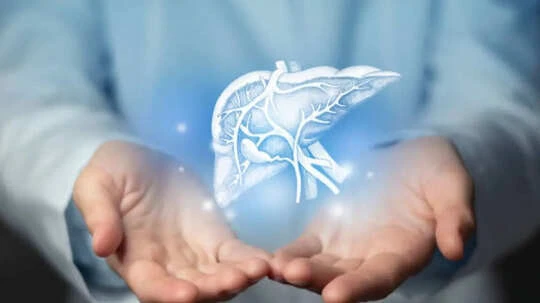A woman donor from Pune died days after her husband passed away following liver transplant surgery last week, doctors said. The 45-year-old man, identified as Bapu Komkar, underwent the surgery after Kamini donated a part of her liver.
According to doctors, Bapu suffered a post-operative cardiogenic shock, and Kamini’s death is attributed to septic shock and multi-organ failure.
News reports say Maharashtra’s health department has issued a formal notice demanding all procedural and medical details from the hospital to investigate the incident thoroughly.
Husband suffered from end-stage liver cirrhosis
Doctors say Bapu was suffering from end-stage liver cirrhosis, and Kamini had volunteered as a live donor. However, according to the hospital, a thorough pre-surgical counselling risk was provided to the couple. After the surgery, Bapu’s condition deteriorated rapidly, and he succumbed.
While Kamini did show signs of recovery initially, she later developed septic shock and, despite all efforts, could not be saved.
What is cardiogenic shock?
A cardiogenic or hypotensive shock happens when your body’s circulatory system fails to move oxygenated blood and nutrients to cells, leading to multi-organ failure despite advanced treatment.
Experts say it is a medical emergency characterized by a dangerously low cardiac output, which causes inadequate blood flow to vital organs. It is commonly caused by a severe heart attack, but other heart conditions can also lead to it.
Why is an organ transplant done?
According to doctors, organ transplantation is done to save lives when vital organs like the heart, liver, kidneys, lungs, or pancreas begin to fail or have stopped working due to illness, injury, or genetic conditions. The procedure replaces the non-functioning organ with a healthy one from a donor, with matching of the same blood group, and offers a chance to extend life and improve the patient’s quality of life.
While organ donation and transplantation save many lives across the world every year, it is important to understand that living organ donors undertake a greater risk of having surgery than those who have passed. Also, sometimes, organ transplants fail, or the recipient’s body rejects the organ after the transplant.
What is post-transplant recovery?
According to doctors, post-transplant recovery involves carefully following schedules of medicine, a healthy diet, and slowly taking care of physical health after any operation. Early ambulation, monitoring vital signs like temperature and blood pressure, and attending frequent follow-up appointments are also essential for monitoring the new organ’s function and managing overall health.
Liver transplant is among the riskiest surgeries, as the patient’s recovery would be lifelong and needs adherence to prescribed immunosuppressant medications so that there is no organ rejection. Also, doctors suggest a healthy and balanced diet, avoiding harmful substances like alcohol and tobacco, and gradual physical activity as advised by doctors.
Key aspects of recovery also include good hygiene, which can help prevent infections; regular follow-up appointments for monitoring; and prompt reporting of any new symptoms like fever or jaundice to your transplant team. At the hospital, specialised equipment will be there to monitor your recovery, providing fluids and medications through tubes and drips until you can breathe independently and fluid balance is stable. Mostly, doctors will discharge you when your pain is controlled, you drink and eat well, and can walk with minimal difficulty.
